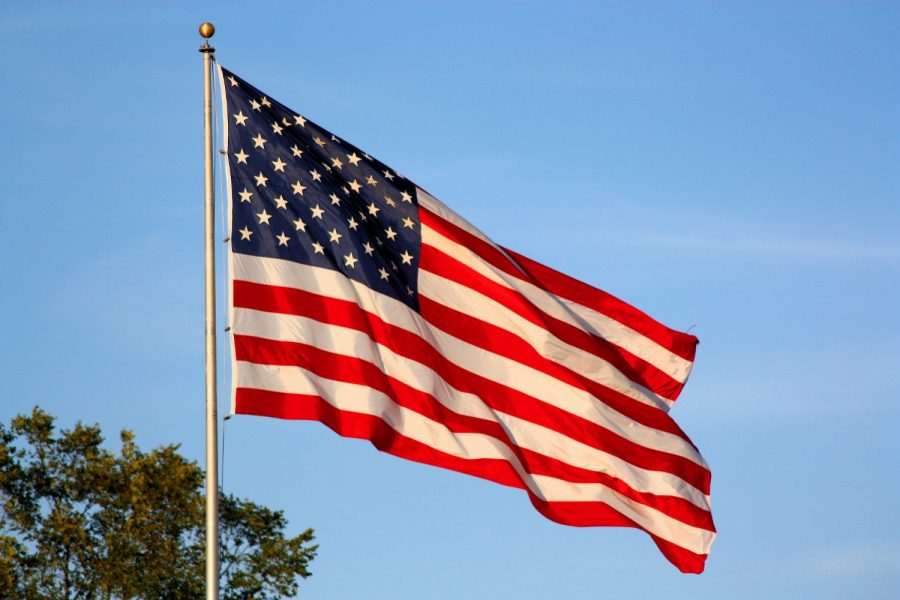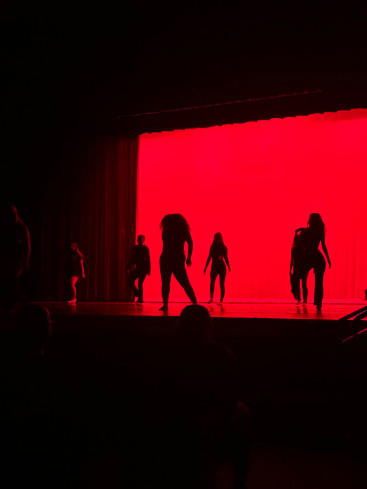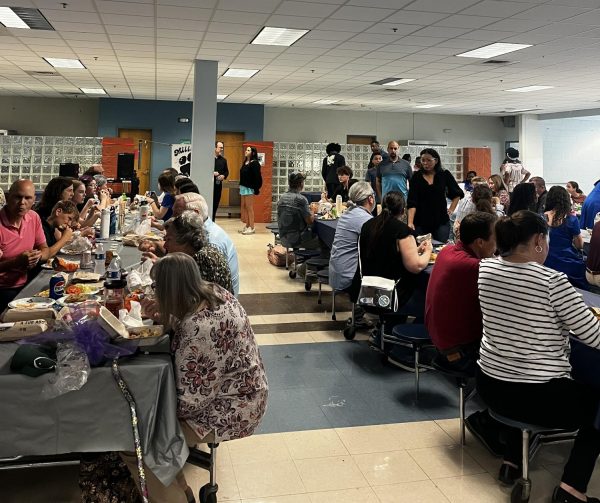The right to remain silent?
Since 2006, NC schools have been required to provide students with a daily opportunity to recite the Pledge of Allegiance. However, a 1943 Supreme Court ruling decided that students cannot be forced to participate in reciting the pledge.
May 23, 2016
The role of the pledge in schools is a contentious issue, especially after the events of 9/11 ushered in a new wave of patriotism and anti-terrorist rhetoric. Since 2006, North Carolina schools have been required to provide students with a daily outlet to recite the Pledge of Allegiance. Forty-three US states and territories require the same. However, a 1943 Supreme Court ruling decided that students cannot be forced to participate in reciting the pledge and that schools are merely required to give students the opportunity to say it if they wish. So why is there so much pressure on students to conform to the practice? There are many reasons why a student might choose to opt out of reciting the Pledge of Allegiance, and the harsh reaction they sometimes face is unfair and unwarranted. Freedom of speech allows students to say the pledge and also allows them to not say it.
Typically, the first thing told to students who do not say the pledge is that it is disrespectful to the veterans. However, in my experience, this is not the intention of those who opt out. Not saying the pledge has nothing to do with respect for the veterans, and I have yet to come across a person who truly disapproves of and intends to disrespect them. Reasons for not saying the pledge tend to run more along the lines that it is too similar to indoctrination, is unnecessary, that its words are false, and includes religious language. Veterans are unlikely to hear the pledge recited in schools, anyways, besides perhaps a few staff members who have served. Even so, the armed forces fight for all people’s freedom and freedom and speech, regardless of if a person says the pledge or not. Those who are so concerned with helping the veterans would be better off improving veteran programs like the VA, fighting veteran homelessness, and trying to improve mental health care for them. Words recited dully out of habit are not the priority for someone who is struggling to receive adequate healthcare for conditions like PTSD. Senior Carson Cutright commented, “It’s actually a major issue to me to limit the importance of veterans into the pledge or the VA. They deserve so much more than that.”
So what is the real reason for the intense backlash to students not saying the pledge? Is it simply herd mentality? Maybe the negative reactions stem from our desire to ‘stick to the status quo.’ Whatever the reason, there are valid reasons to say the pledge and equally compelling justifications against it. For many, the words of the Pledge of Allegiance do not reflect their truths or perceptions of America. Some people do not believe that there is true liberty and justice for all Americans in light of police brutality, racism, anti-LGBT+ policies, and other issues. Others disagree with the controversial line, “one nation, under God,” which was absent from the original version and only added in 1954, violating the Establishment Clause. Also, some students are not even American. The ritualistic practice bears too much resemblance to mindless indoctrination to others, representing unconditional allegiance to the US which discourages due criticism that could improve the country.
The arguments for the pledge also have merit. Cutright says, “I think saying the pledge is just a small thank you every day to those who have served and sacrificed so much. Is it enough? No. I also believe it helps unite us as a people. In a country that is so divided today, it’s nice to see all of us unite on something.” Students who believe the pledge is a good unifying element of patriotism and gratitude should be able to recite it unhindered. Those who would prefer not to say it or even stand for it should not be forced to and should not be criticized provided that they remain quiet to allow the recitation. Freedom of speech demands equal treatment for both sides in our schools.












